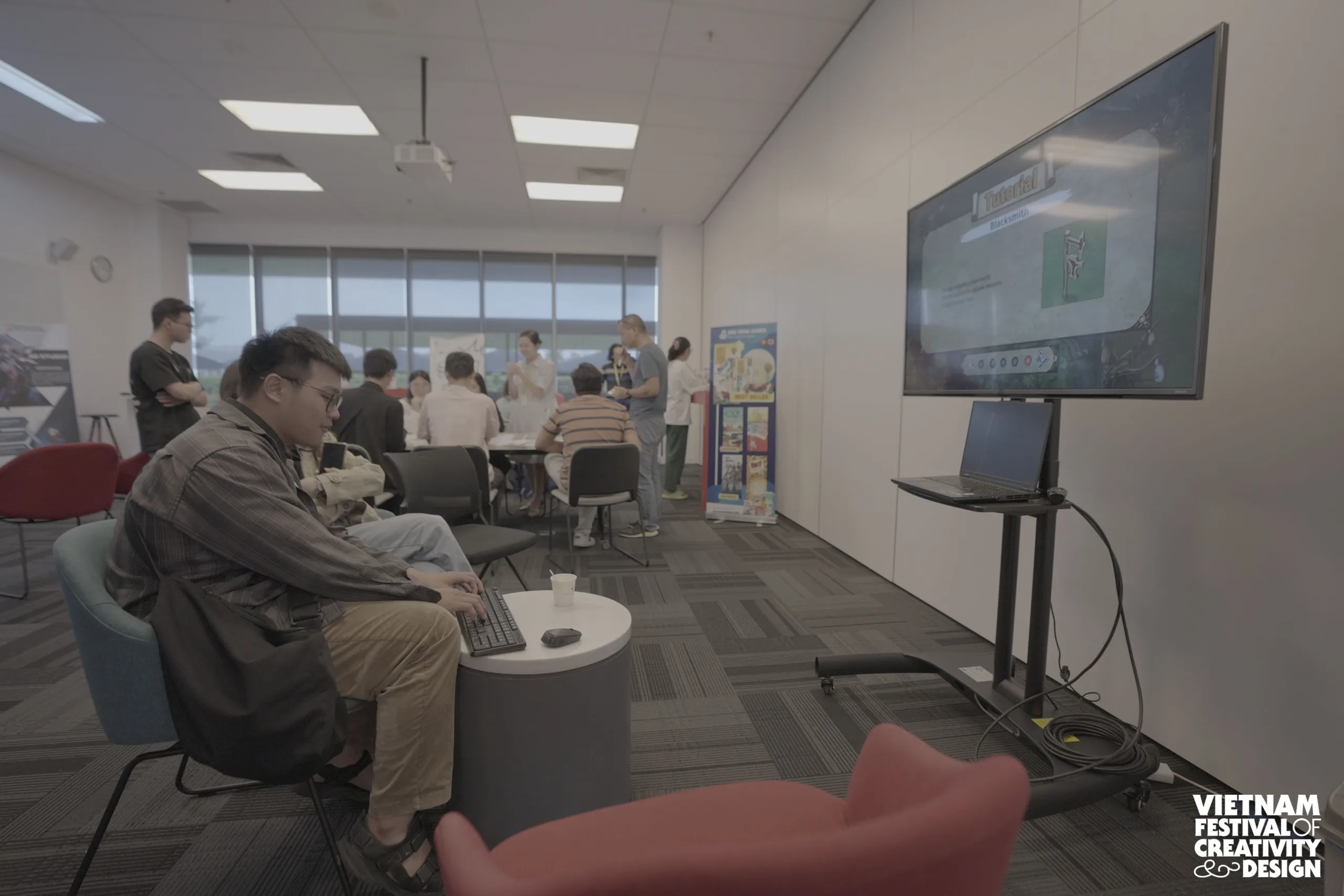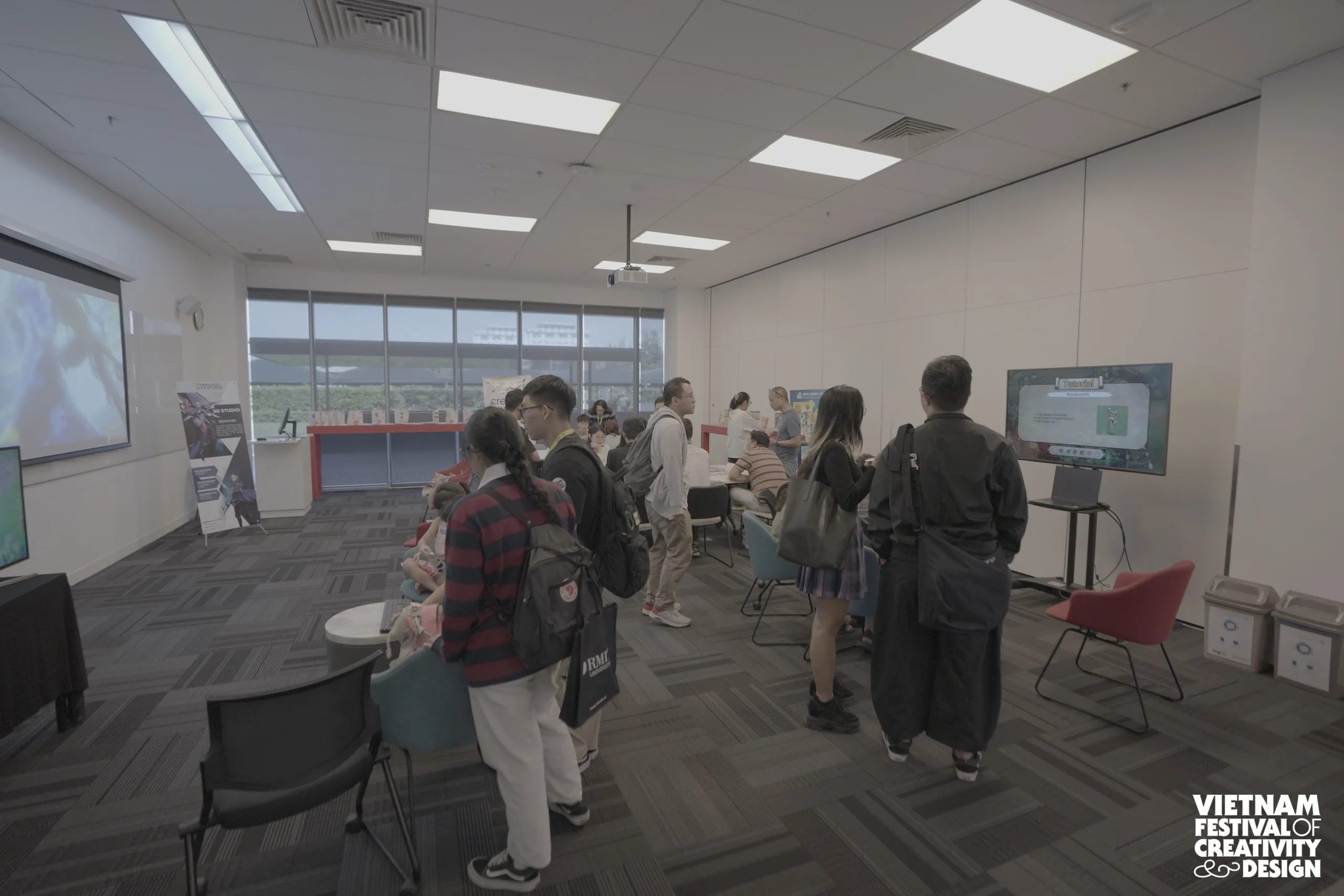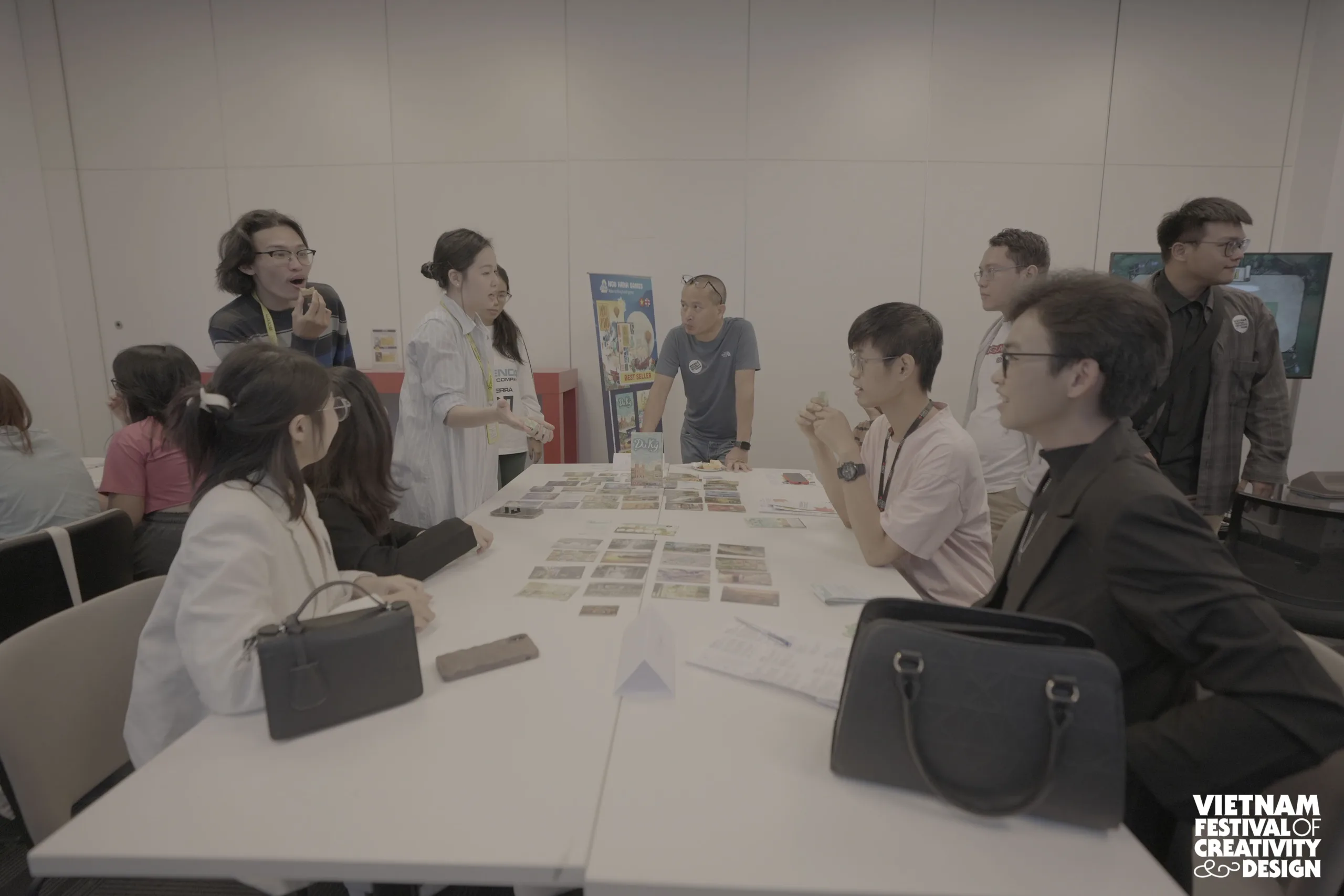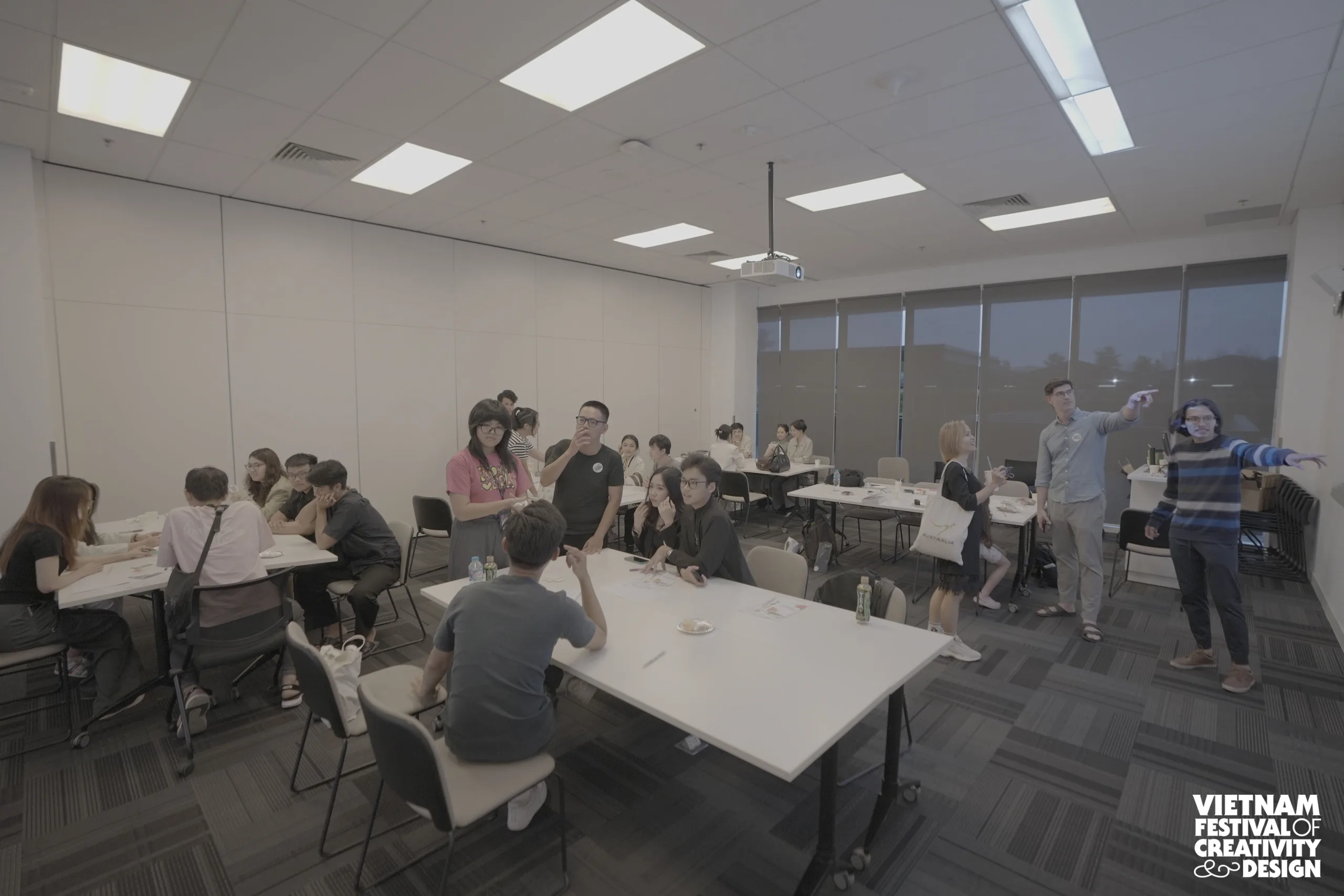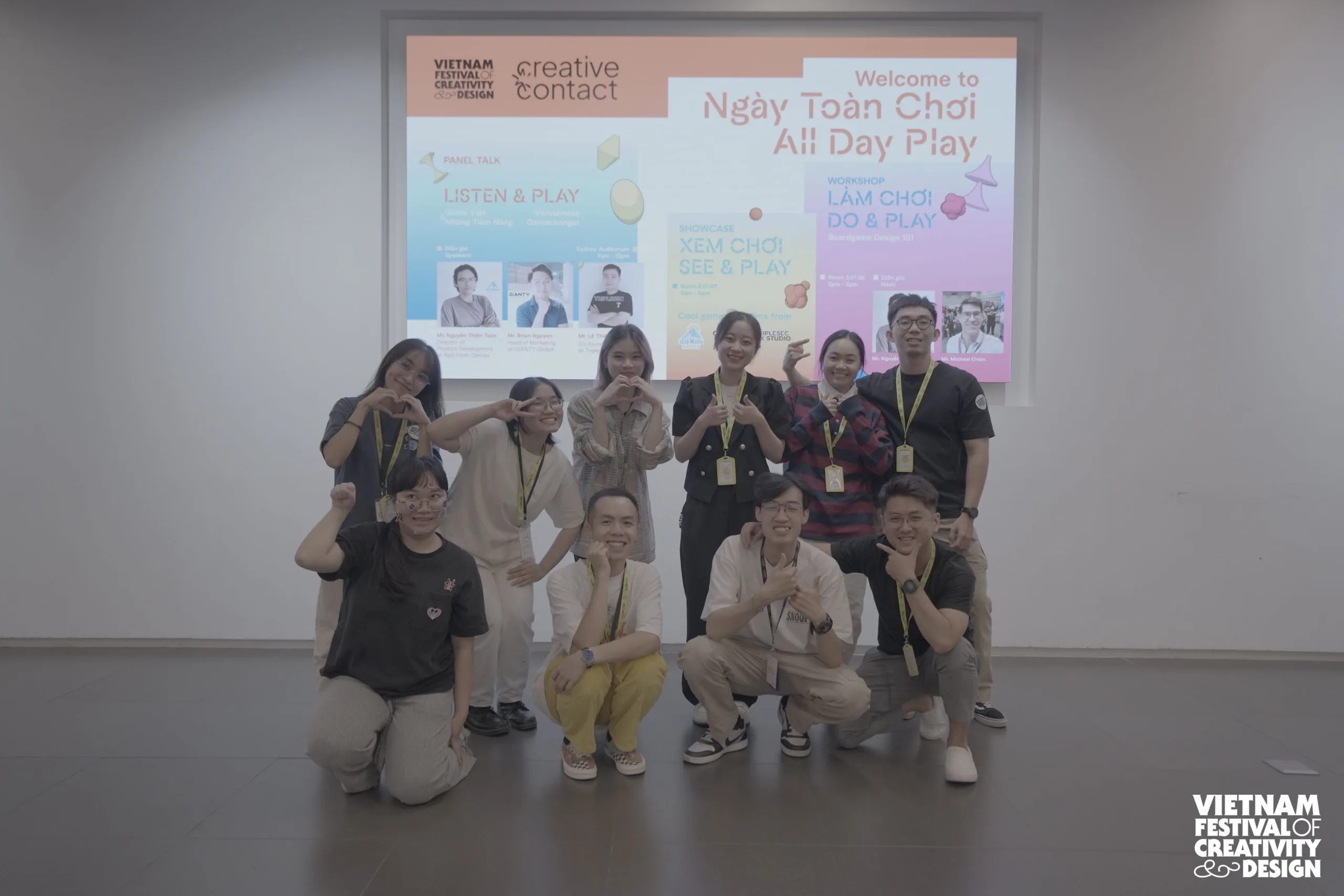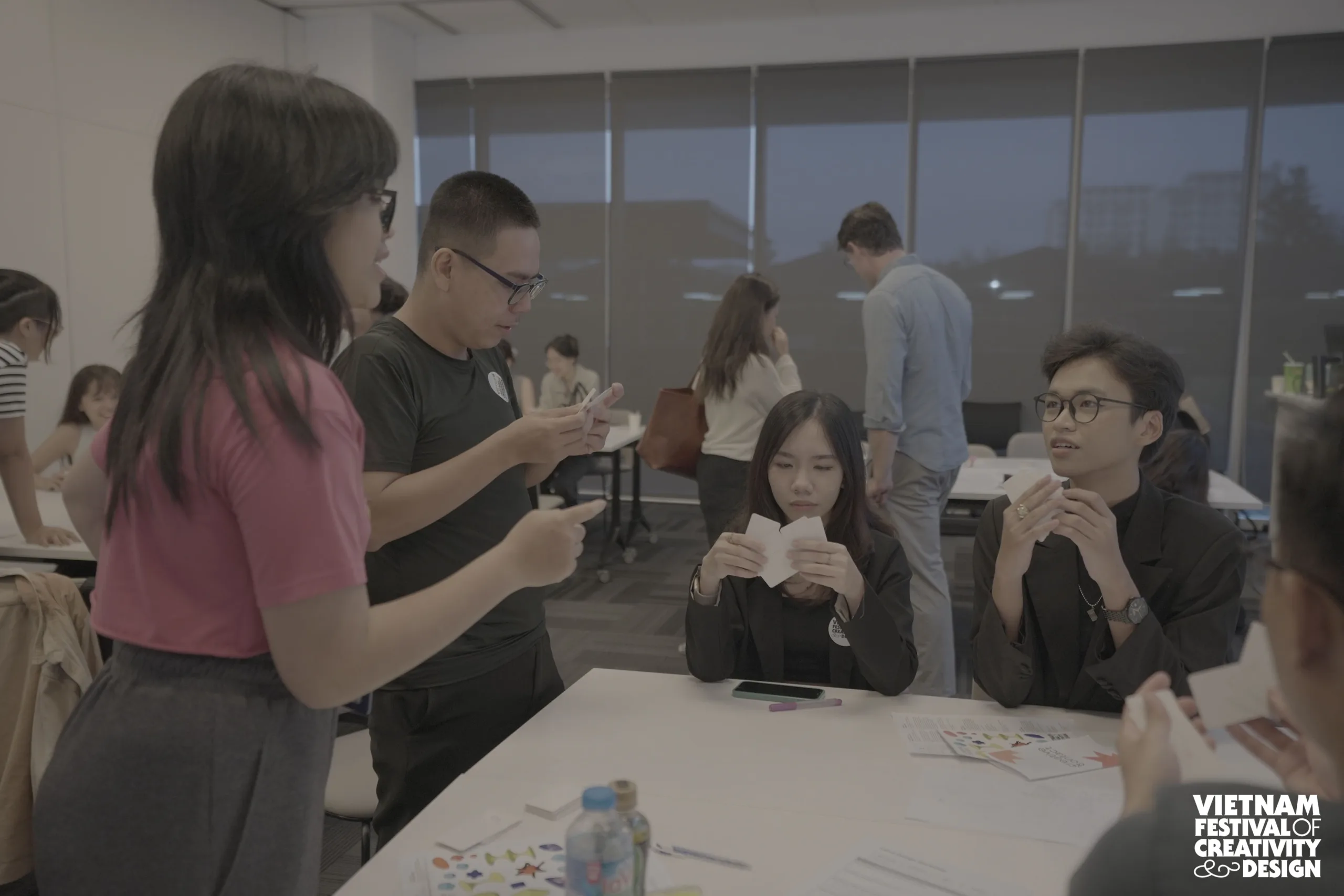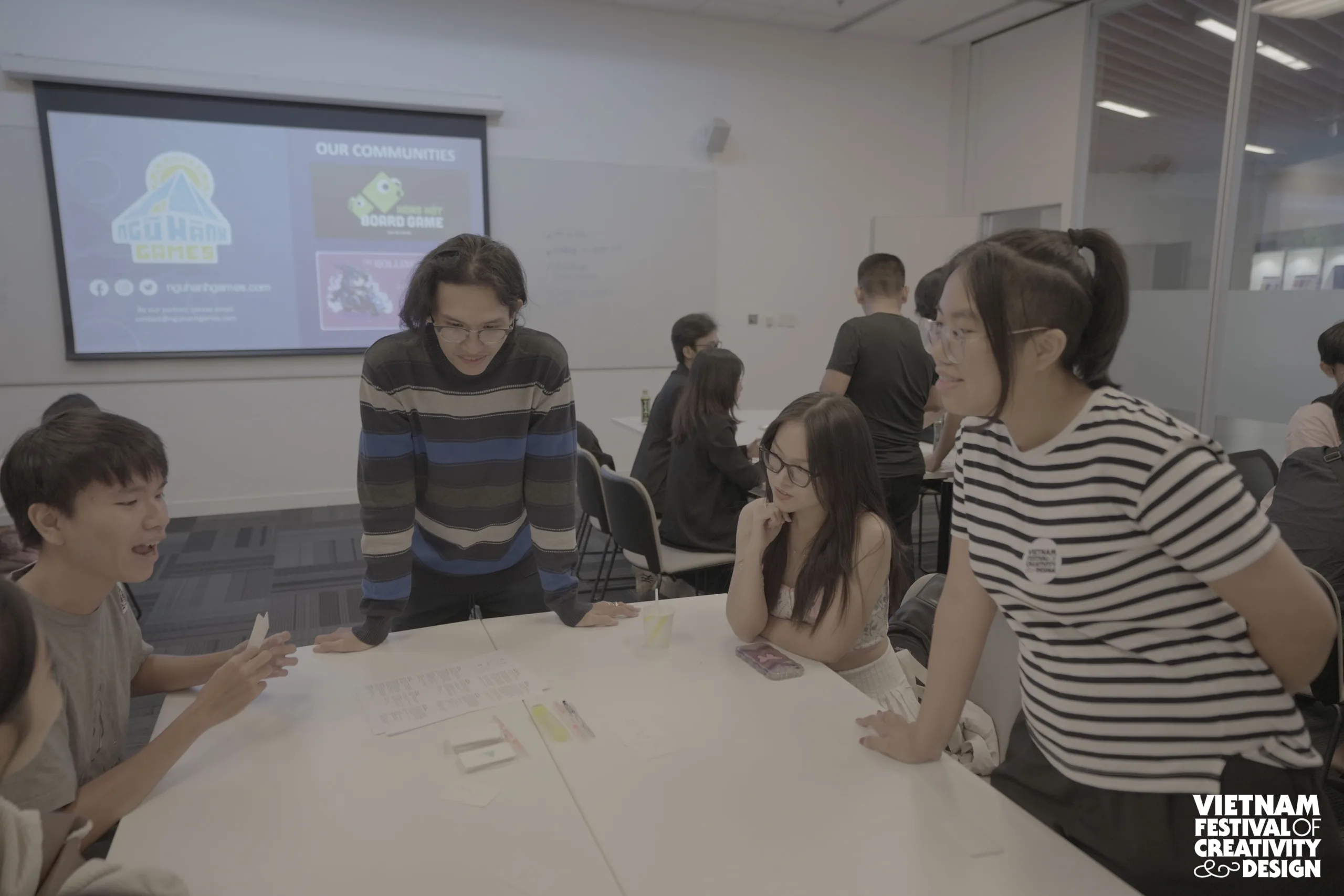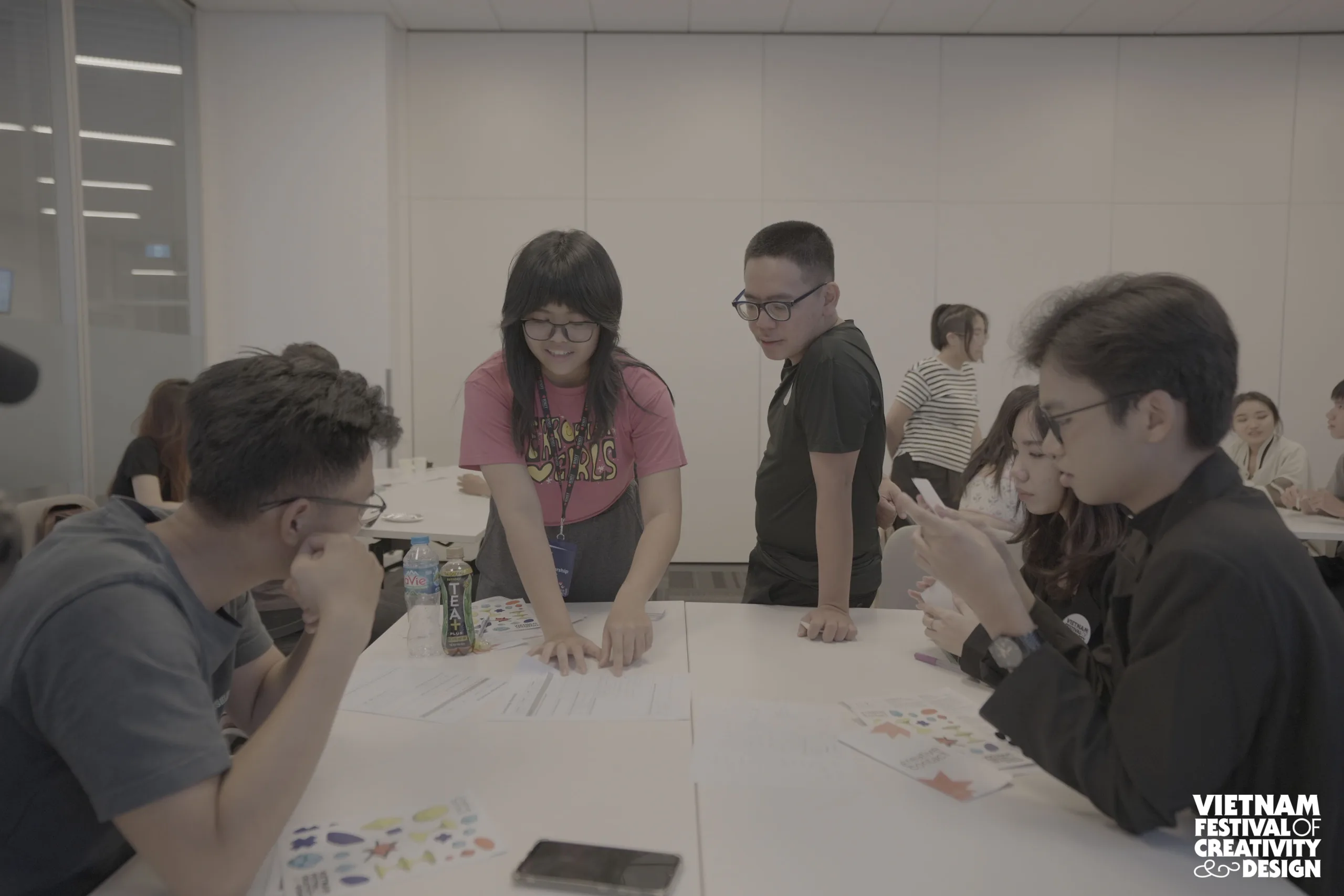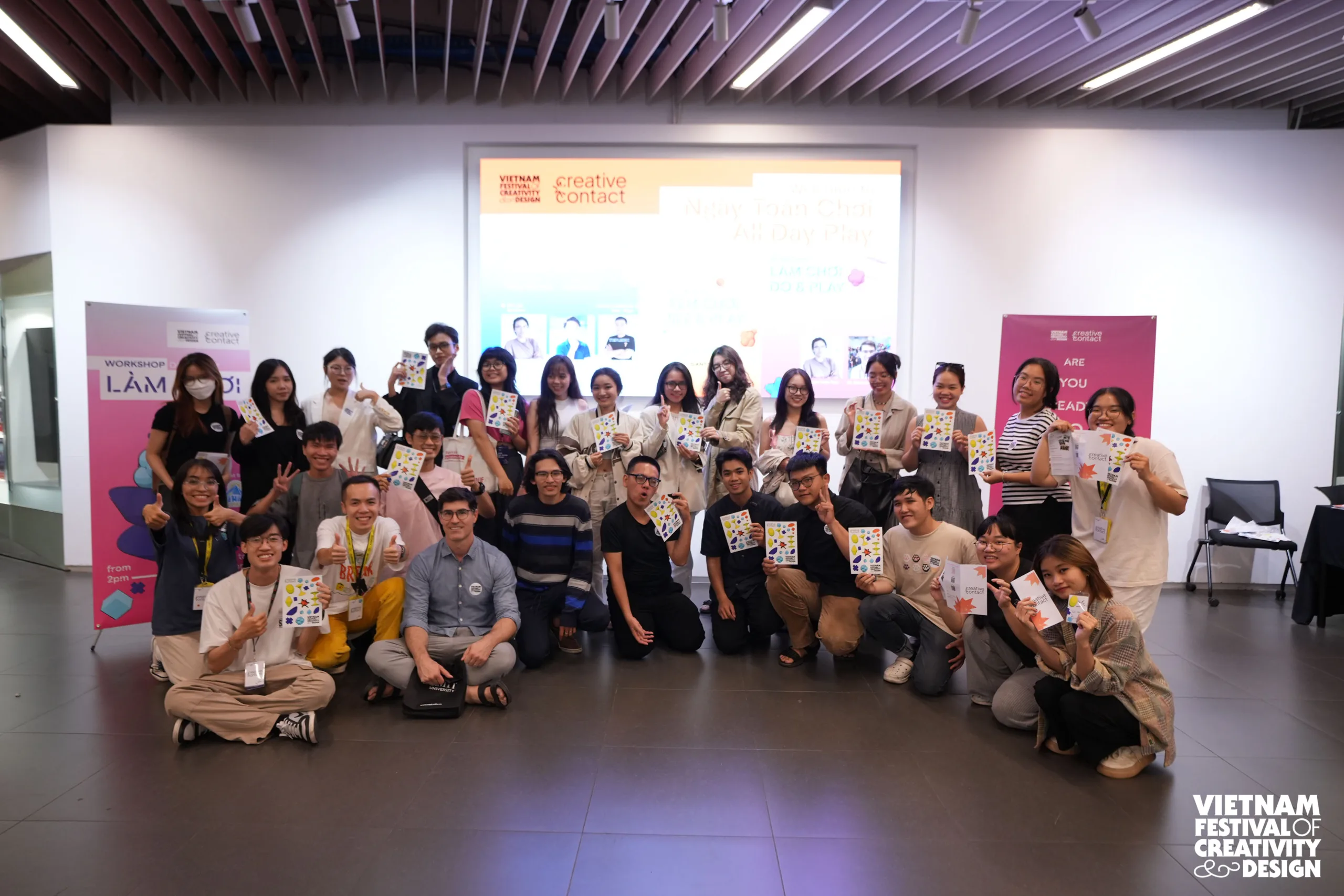That is the common opinion among speakers at the event series “All-Play Day” dedicated to those who adore, are developing or learning about games in Vietnam.
The series spanned over one day and consisted of three main activities: See & Play – an exhibition of game publications from major partners in the Vietnamese gaming industry; Listen & Play – a discussion on Vietnamese games and their potential featuring three renowned speakers from the Vietnamese gaming industry; and Do & Play – a workshop to practice creating board game under the guidance of experts.
Participating in See & Play, gamers had the opportunity to try out several game titles directly at the exhibition. This was also a space for game enthusiasts and developers to gather and exchange ideas, as Nguyễn Thiện Toàn (Ngũ Hành Game) emphasised: “If we want Vietnamese games to thrive, we need to connect with each other and talk about games more.”
The morning was the time for the discussion between three speakers from renowned game producers which were Nguyễn Thiện Toàn (Ngũ Hành Game), Brian Nguyễn (GIANTY Global) and Lê Thiên Quốc (Triplesec-VFX).
Together with the audiences, they reviewed the transformation of games in Vietnam, from their emergence to today where there have been certain positive signs. According to the speakers, games have undergone significant changes both in Vietnam and globally. From monochromatic games with characters who could only move sideways in two directions and were available on bulky computers with relatively powerful configurations, there have been tremendous changes in technology, visuals, gameplay, and character designs which have become increasingly sophisticated in terms of graphics and animations. The rapid rise of smartphones has also made games more accessible to a wider audience, creating momentum for new games to “hit the market” swiftly, but at the same time, it is also a challenge as the pace at which one game is replaced by another is equally high.
Games in Vietnam used to have a “bad reputation” with negative images in the previous decade. Meanwhile, games are simply seen globally as a form of entertainment with educational elements and a high sense of connection, helping players relax or develop certain skills. In some countries with strength in game production such as Japan and the United States, games are even considered cultural products that bring the local culture to the world. If a game garners attraction, it can serve as a highly effective cultural marketing tool.
According to the speakers, Vietnamese games have great potential thanks to the abundant, young and eager-to-learn workforce, whose game development skills are not inferior to people from other countries (as evidenced by the increasing appearance of Vietnamese visual effects and game development teams). Vietnam also has a sufficiently rich and diverse culture that remains largely untapped. Combined with the imagination and creativity of “brutal Confucianism” (in the words of Nguyễn Thiện Toàn) and open thinking, all of these factors are the strengths of Vietnamese game designers.
However, what is puzzling is that Vietnam has not yet made a name for itself on the global map of gaming with competent products.
“Flappy Bird is a famous case, it was easy to play, available on various platforms, and free. From a game design perspective, this game had depth and was very engaging, which was why you could not stop playing it. The designer was so meticulous to the point that each tap was precisely adjusted to create a perfect jump. Flappy Bird was attractive not only because of its gameplay but also the way it conveyed the story. This was also a rare successful Vietnamese game but did not last long. Therefore, it is both a game to learn from and a lesson to avoid. If you want your game to have a strong impact, besides marketing tools, you need to spend 1 to 2 years on market penetration, then you have to extend the game’s lifespan to 5-10 years on the market, it is only a success when you reach the point where other games start imitating yours. It must be said that Vietnam has many talented game designers, but lacks game designers with truly good design thinking.” – Nguyễn Thiện Toàn said.
That’s right, to design good games you need to play a lot of games and play the same game many times. But just playing for fun is not enough. Play with the eyes of a game developer, and analyse as you play. Is this detail good enough? If you were a customer, would this game attract you? Will the players remember it? Does it have originality? Are fundamental, national, and cultural elements applied well? Games like Mario and Pokemon also took 10-20 years to design by developers with decades of experience. Without that kind of thinking, it is impossible to develop a good game.
In reality, the game industry in Vietnam is considered a key non-smoke industry that receives great attention from the government. However, game development is only one thing, game business (game publishing and trading) is another. All require learning. And where to learn? Learn through practice – by dedicating to actual game development, and by stepping out into the world, observing and learning more to improve your thinking, enhance your skills, “taking in” projects for production and gradually growing enough to build your own game title by yourself.
To further clarify these insights, the workshop Do & Play in the afternoon offered direct guidance on how to create a basic board game. Participants can try their hands at building a story and setting for their game, defining the “rules” and “principles” – two concepts that game designers often confuse which leads to the failure of their games – and then deliver a presentation to everyone. The two speakers Nguyễn Thiện Toàn and Michael Orion also provided feedback and comments to help participants improve their games.
After a day full of activities with games, both professionals and those outside the industry undoubtedly gained new insights into the gaming industry in Vietnam in particular and the world in general. Should you need more detailed information about these activities, you can rewatch the discussion on VFCD’s YouTube channel at: https://www.youtube.com/@vfcd.events.
